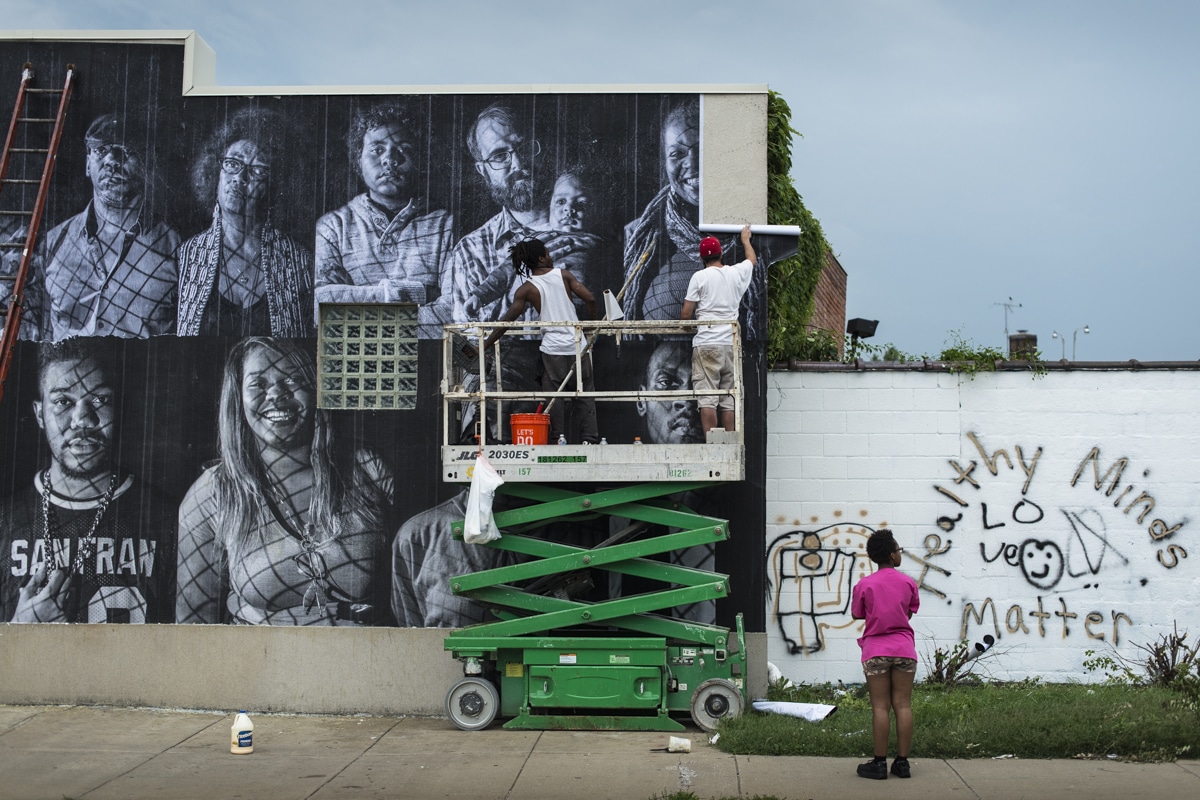Robin Kelley’s advice to black students in the academy—to heed the call of Fred Moten and Stefano Harney to be in but not of the university—reminds me of a contradiction I first heard from black church folks. They encouraged Christians to be in the world and not of it. The saying, which comes from the New Testament, always puzzled me. I did not understand how I could live in the world and not be shaped or affected by those who share the world with me. How can I exist—as a black, queer, able-bodied, and cisgender woman—in the world and yet be separate from the realities, the violence, temptations, or problems my people face? Can black students today truly be in the academy and not of it? Is fugitive study possible in the face of student loan debt, pressures to graduate, and a wave of black uprisings across America? I would argue instead that activists must be both in this world and of it if we want to transform it.
The answers to those questions are full of contradictions that student activists must contend with today. On the one hand, demands for more welcoming campus environments make claims on a system that was never set up to serve. On the other hand, the demand for a collegial space where one can belong is also deeply human. Students are often sold on the idea that college is such a place. There is something deeply human about that. But there is also something deeply disconnected about the idea that we can one day belong to an institution that systemically excludes most of us.
As Kelley suggests, many students who are rising up and articulating demands are motivated by the sense of a broken covenant or the belief that the institutions can be better, for themselves and for black people collectively. This is a remarkable form of optimism in the midst of systemic oppressions. Whether or not this hopefulness is naïve, I believe that it reflects what young black people learn about power, how power is built, and how it can shift. Today’s black student activists, particularly those who grew up in the United States, are steeped in the neoliberalism that pushes bootstrap, individualistic, merit-based narratives as the paths to upward mobility. These students are of that world and at the same time are exploring, both within and outside of academia, alternatives to what they have learned. The beautiful part is that they are doing it collectively. The potential for radical transformation arises when student leaders, including those who are women and queer, are visible, thinking and acting together. This is the moment for student leaders to develop sharp analyses of power. If they do, the focus of their demands could shift significantly—from faculty hiring, multicultural curricula, and diversity officers to bolder initiatives.
Kelley is right that this shift requires love if we are to create the world we want to live in. But he misunderstands the relationship between love and trauma. Where he acknowledges trauma but asks us not to act on it, I believe that trauma is inseparable from the love that motivates activism. It is love in the face of repeated trauma that governs my work and the work of so many young black folks with whom I organize in communities across the country. We cannot separate our pain from our resistance.
Contrary to Kelley’s view, our trauma, our bodies, and our capacity for resistance are all deeply interconnected. If we are to be serious about making transformative material changes to the lives of black folks, disrupting and overturning systems of power, then we must also overturn how our bodies—which hold our selves and reflect our selves—are treated. Of course, we cannot stop at or stay in trauma alone. But we must sit with it, especially within collectives committed to black liberation. Those collective spaces allow for, and have served as sites of, collective action.
I agree with Kelley that black people cannot be reduced to bodies. Our humanity is more than a physical container. At the same time, black bodies cannot be divorced from black people; they have systemically been sites of trauma. The state does not simply target the idea of blackness, womanness, ability, or non-binary gender identity. It attacks us through psychological and physical violence. My body is in this world and is my vehicle for resistance. When we have deep commitments to liberation, we must bring all that we are into the struggle.








